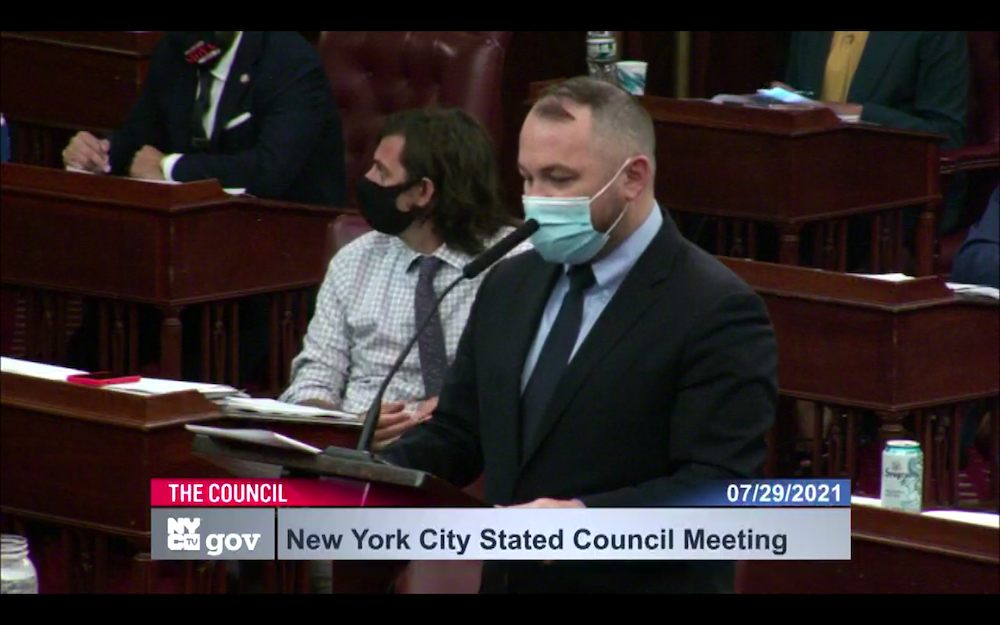Local restaurants will soon know without asking how you like your burger cooked and what condiments you want with it without ever asking.
That after the City Council today passed legislation which would require third-party delivery platforms to share information related to delivery orders placed through their website or mobile application with the restaurants that request it.
City Council Member Keith Powers (D-Manhattan) sponsored the measure which would provide restaurants with the customer’s name, phone number, e-mail address, delivery address, and the contents of their order.
Customers would be able to opt-out of the sharing of the information. The service would be required to provide clear disclosure to customers explaining what information would be shared with the restaurant.
“After a devastating year for the restaurant industry, it’s imperative that the City Council is doing everything in our power to boost their recovery,” said Powers. “My bill, Int. 2311, will support local restaurants by making it easier for them to connect with customers, while also ensuring privacy protections for all New Yorkers.”
The restaurant fulfilling the customer’s order would be permitted to retain that information, which must be provided by the platform in a machine-readable format.
Platforms could not limit the restaurants’ use of the information, but the bill would prohibit the restaurants from selling, renting, or disclosing the information without express consent from the customer, and the customer would be able to withdraw their consent to use their information.
This bill is targeted at third-party delivery platforms like Uber Eats, DoorDash, GrubHub, etc.
Violations of this bill would result in a civil penalty of no more than $500 per day per restaurant to which a violation was committed.
Council Member Selvena Brooks-Powers (D-Queens), who abstained from a vote on the legislation, was supportive of a larger package of small business legislation but had concerns about data privacy.
“I just had one concern about the data privacy component, looking to see an opt-in rather than an opt-out but I think it’s still a very good bill,” said Brooks-Powers.
The legislation was adopted by a vote of 36 affirmative votes, 5 negative votes, and 2 abstentions and would take effect 120 days after it becomes a law.








